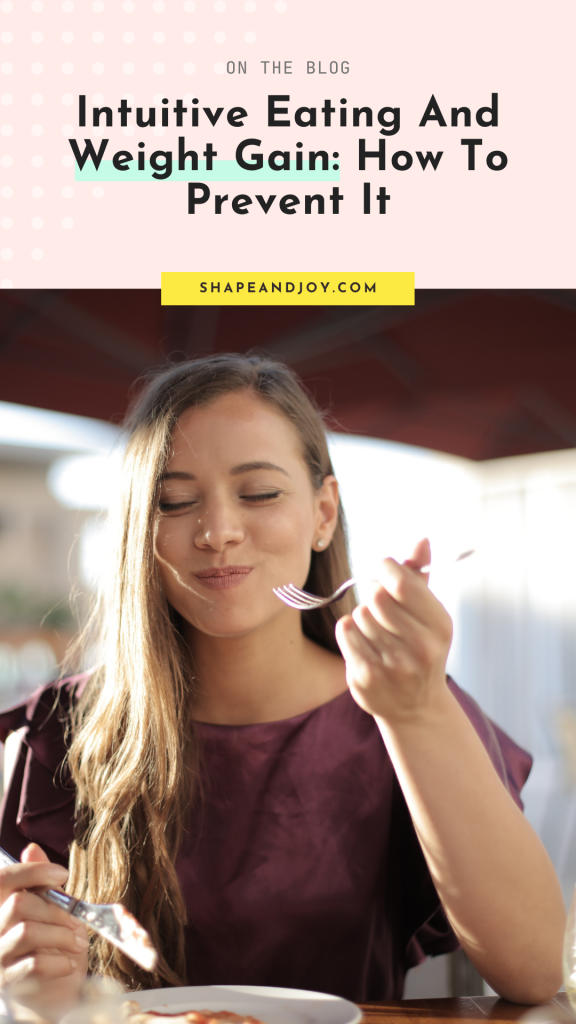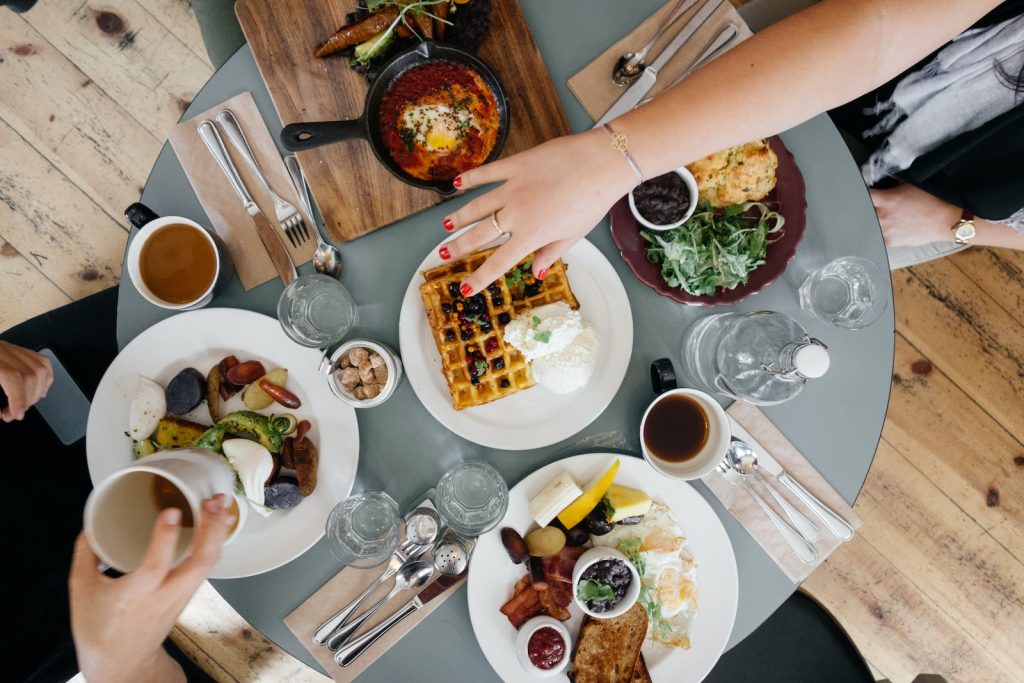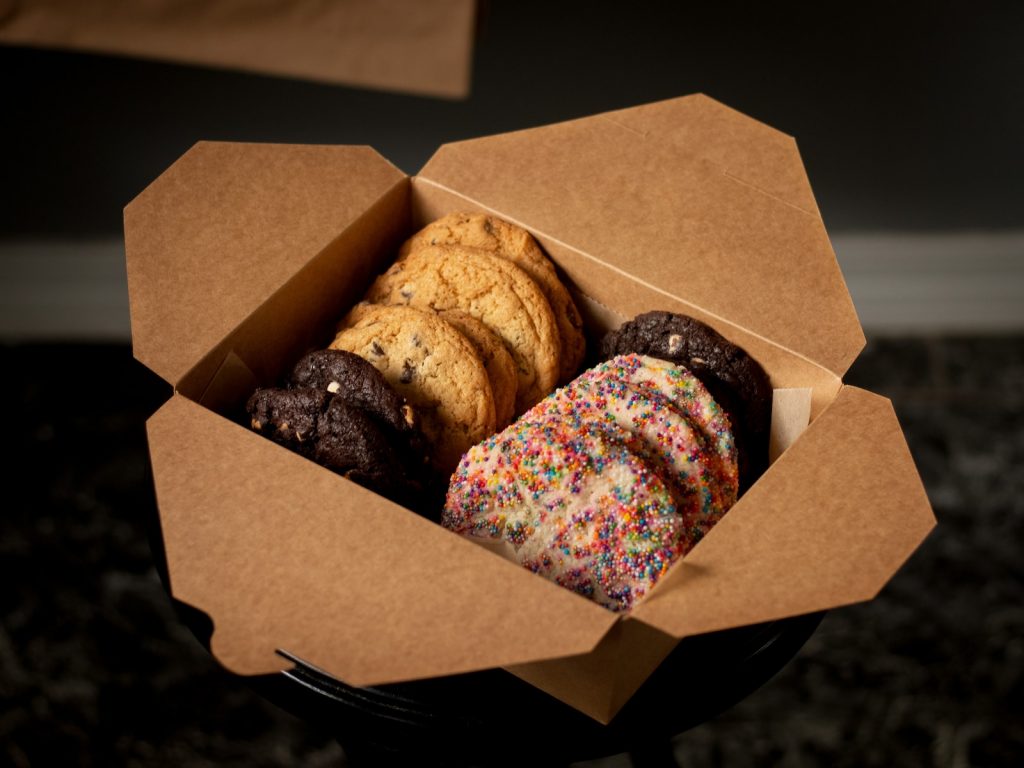This post may contain affiliate links, which means that I may earn a commission if you click on the link, with no cost for you. It’s one of the ways I support my blog. You can read more about this here.
Introduction
Can you eat intuitively and lose weight? Many people will say the two can’t co-exist, and that the idea of intentional weight loss goes against intuitive eating. But this depends on how you view intuitive eating. Listening to your body and recognising hunger and satiety cues requires practice. As well as a good idea of the basics of nutrition for satiety. In this post, I want to cover ways you can incorporate mindful eating practices into your weight loss journey. Intuitive eating and weight gain don’t have to go hand-in-hand.

What Is Intuitive Eating?
- Rejecting Diet Mentality
- Listening to hunger and satiety cues
- Eating what you want
A couple of years ago I stumbled across the term ‘Intuitive Eating’ from a podcast (I can’t remember the exact one) and thought I had found the thing for me. Intuitive eating seemed simple enough, stop dieting and eat what you want but pay close attention to your hunger and fullness cues. I bought several books on it and devoured all of them, but I soon realised something they all had in common – they all said that you need to stop trying to lose weight.
I didn’t agree with this, and I still don’t. Intentional weight loss has actually started to gain a bad rep over the last couple of years. It’s labelled as ‘disordered eating’ or ‘diet culture’. While I think these can be true to a certain extent, this is a huge generalisation and I don’t think it’s helpful to simply tell people to stop trying to lose weight. I also have this post on practicing body positivity while trying to lose weight that you may find helpful.
One book I read stated that you can eat whatever you want, and eventually, your body will stop craving all the “junk” or processed foods. You will start craving salads, and eventually, your weight will settle to where it’s meant to be – or something along those lines. But this didn’t make any sense to me in the slightest. I had been eating this way for years! Why wasn’t I now eating non-stop salads? Because it just wasn’t true. And I’ll explain more in later sections.
Allowing yourself to eat what you want can feel scary, but it doesn’t have to lead to weight gain. Learn more about giving yourself unconditional permission to eat in my post on Sustainable Weight Loss.

Diet Culture
I do think that there is harm in diet culture and there are a lot of shady and dangerous diets out there that should be avoided. But losing weight can have huge benefits to your health. While I think that should be the main focus of weight loss, there’s also nothing wrong with wanting to look a certain way. As long you don’t believe it’s the ‘be all and end all’ of happiness.
Despite these books advising you can’t eat intuitively while trying to lose weight – I gave it a try. The general advice is to rank your hunger and fullness levels between 1-10 before and after meals. There is an ‘ideal’ range where you are not starving before a meal, and not feeling sick with fullness afterwards. I think this is good advice, and I think it’s something that everyone should practice. (Not necessarily ranking their hunger but just paying attention to it a bit more).
But I don’t think you can rely on this solely. Here’s why.
Ultra Processed Foods
Over the last few years I’ve researched nutrition A LOT, and it’s been proven that “junk food” stimulates the reward system in the brain in the same way as addictive drugs. Whether or not this food fills you up, you get a hit of dopamine (the reward chemical) and your brain is hardwired to seek out things that release this again. This is something a lot of food companies are aware of, and design foods that will keep people eating.
This is a really simple way of explaining it. This book really helped me understand this more. The author talks about the ‘Bliss Point’ of food, stating “The bliss point is an industry reference to the perfect amount of sugar in products that will get us to not just like those products, but to want more and more,”
You do get a small release of the same chemicals when eating whole foods like fruits and vegetables. Because obviously your brain wants you to eat. But it’s no where near the levels that you will get from processed foods.
On top of this, most highly processed foods have little nutritional value. Satiety has very little to do with the amount of calories you’re consuming and a lot more to do with the quality of food, the macronutrients, and the volume of these.
Reason for Intuitive Eating And Weight Gain: Not All Foods Are Made Equal
So for example, a pack of Oreos contains around 640 calories, but how full would that keep you really? Not at all!
Whereas for the same amount of calories or less, you could actually have a pretty big meal of whole foods i.e. the below makes up roughly 540 calories:
- Chicken Breast Fillets – 300g
- Whole Grain Rice – 1 Serving (50g)
- A salad with tomatoes, lettuce, cucumber.
(And you can still have a couple of Oreos after if you want!)

Chicken is very high in protein and rice with vegetables is high in fibre – both of which are the two most important macros/nutrients when it comes to satiety.
Not all foods are made equal. When I previously tried Intuitive Eating, I was still eating mostly processed foods. I believed I was eating intuitively because I was paying attention to how hungry I was. But my body was still getting little to no nutrition and I was a complete sugar addict. I was hungry all the time! And after a meal, would soon be hungry again.
So, intuitive eating at that time was a bust.
Emotions can complicate our relationship with food. If you struggle with emotional eating, I’ve got some tips to help you in Conquer Emotional Eating Today.
80/20 Nutrition
The key to satiety sits with whole foods. The majority of your diet should be made up of whole foods, high in nutrients and vitamins. Including:
- Fruit
- Vegetables
- Wholegrains
- Nuts and Seeds
- Beans and Lentils
- Lean Meats
Eating whole-foods is essential for weight loss.
The 80/20 approach is a form of flexible dieting. The idea is that 80% of the foods you eat should be whole unprocessed foods, and “junk” or processed foods should make up 20% of your diet. That way, nothing is off limits, but the bulk of what you’re eating is filling and nutrient-dense.
Mindful Eating
Learn to enjoy food at meals.
Mindful eating is often confused with Intuitive Eating, and maybe to some they are exactly the same thing.
But I see mindful eating as just paying attention more to what you’re eating. It’s not measuring your hunger before and after meals and listening to your body. It’s sitting down with a meal, with minimal distractions and enjoying your food.

I’ve sat down to eat in the past with a fork in one hand and my phone in the other, scrolling through Instagram while taking bite after bite. By the end of the meal, it was like I hadn’t eaten anything!
Mindful eating is savouring the taste of food, and having the majority of your focus on your meal. It’s recognising when you are no longer enjoying the taste as much (that’s when you know you’re getting full). And I think this is especially important when you’re treating yourself, and having something like a takeaway, or some cake (more calorie dense, processed foods). I believe in all things in moderation, but what’s the point if you’re not enjoying it?!
Tips To Practice Mindful Eating:
- Sit at a table to eat
- Identify what stops you from focusing on the food and remove it from the environment while eating
- Chew food thoroughly
- Pause mid-meal for a few minutes – it can sometimes take a while for us to recognise when we’re full, pausing mid-meal gives your body time to catch-up.
- Pay attention to the change of taste in food, I’ve often pushed past fullness, ignoring the fact that the food doesn’t even taste good anymore…because I’m full! You’d be much better off saving the rest for later, or the next day where you will enjoy it again.
Intuitive eating pairs perfectly with mindful eating. Learn how to stay in a calorie deficit without obsessing over every bite in Mindful Eating 101.
Intuitive Eating And Weight Gain: Conclusion
Intuitive eating is something we should all be working towards, whether on a weight loss journey or not. But you’re probably not going to be able to wake up one day and be able to just ‘listen to their body’. Years of dieting, diets high in processed foods and a lack of nutrient-dense foods have left us unable to recognise our natural hunger and satiety cues.
Intuitive Eating is something you should work towards but isn’t something to solely rely on when trying to lose weight. Instead, start practicing better eating habits that will help you lose weight and give you the skills and knowledge to keep the weight off. Intuitive eating and weight gain are not exclusive to each other.
Have you tried intuitive eating? What is your experience with it? Leave a comment below!

